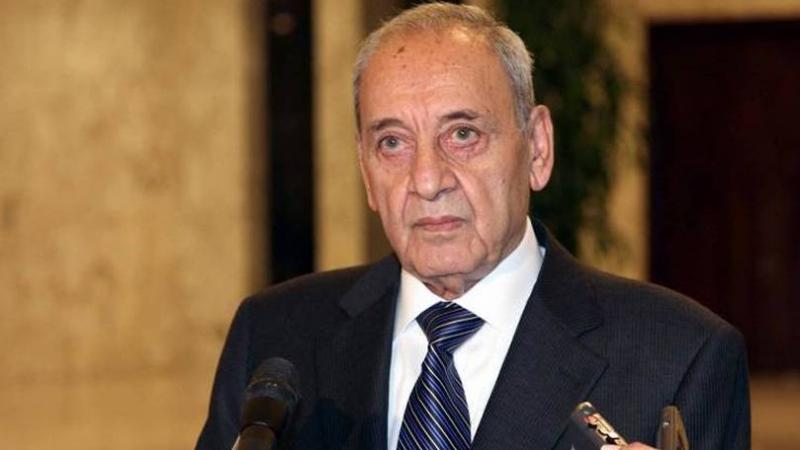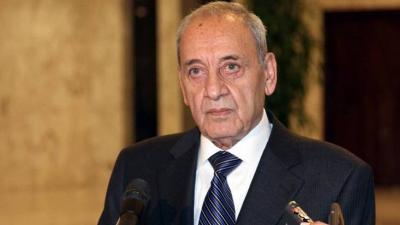Lebanese Parliament Speaker Nabih Berri reassures his visitors when they inquire about his health, saying, "My health is good; however, the country's health is not." In a meeting with the Press Syndicate, chaired by head Aouni Kaki, Berri enumerates the problems Lebanese people are facing and the crises plaguing the country. He points out the lighting in the ceiling of the hall, stating, "This is generator electricity... there is no electricity from the state, electricity on which we have spent tens of billions." He continues, highlighting the economic crisis that has left 81% of Lebanese citizens below the poverty line, concluding with "the major crisis," which is the vacancy in the presidency.
Berri is betting on the pressing factor of time to aid the concerned parties in realizing the need for consensus to elect a new president, amidst the parliamentary blocs' inability to secure the necessary votes for a quorum, let alone the votes required for election. He states that "Lebanon might be able to endure weeks; however, it cannot bear more than that, and Lebanon and the Lebanese cannot endure further decline." Berri confirmed that he would call for a session every week and is committed to this matter; however, he washes his hands of any new call for dialogue at this time.
The Speaker revealed that the agenda for the dialogue he was about to call for only included consensus on the presidential elections, point blank, noting that all the contentious points Lebanon has gone through have ended with dialogue and consensus, from Taif to Doha to the dialogue tables within. He asks, "Will we learn?"
Berri’s relationship with former President Michel Aoun and his son-in-law, Deputy Gebran Bassil, is well-known. There is no friendship or understanding, which is clear from the mutual campaigns and exchanges of statements between their supporters. Berri asserts that the theory of the "strong president," which Aoun adopted as a slogan for his presidency, has "failed miserably."
He sees the "strong president" as one who can unite the Lebanese around him and the institutions of the state, not one who practices exclusionary power and intensifies disputes and instincts. He hopes that the Lebanese will learn from past experiences, saying, "The world loves us more than we sometimes love ourselves... we must dialogue and understand in our homes." Nevertheless, the Speaker firmly asserts that the security situation in Lebanon is "fortified, and the Lebanese possess the awareness that protects them from getting dragged into the cycle of conflict and strife."
Berri noted that the Taif Agreement "is not a lesson in establishment; Taif is our constitution, and the crux lies in its implementation. The agreement equalized Lebanese people and led Muslims to be more stringent than Christians in preserving the current formula," asserting that he has found no enthusiasm among the religious authorities from either side for any formula that deviates from the current one.
He acknowledged that he has failed three times to pass the National Body for the Abolition of Political Sectarianism, a law for elections outside sectarian constraints, and to establish a Senate. Regarding the claims that he stands behind protecting the Governor of the Central Bank of Lebanon, Berri said, "Ask who extended his term... and I say: if he is guilty, then I do not cover for him."




